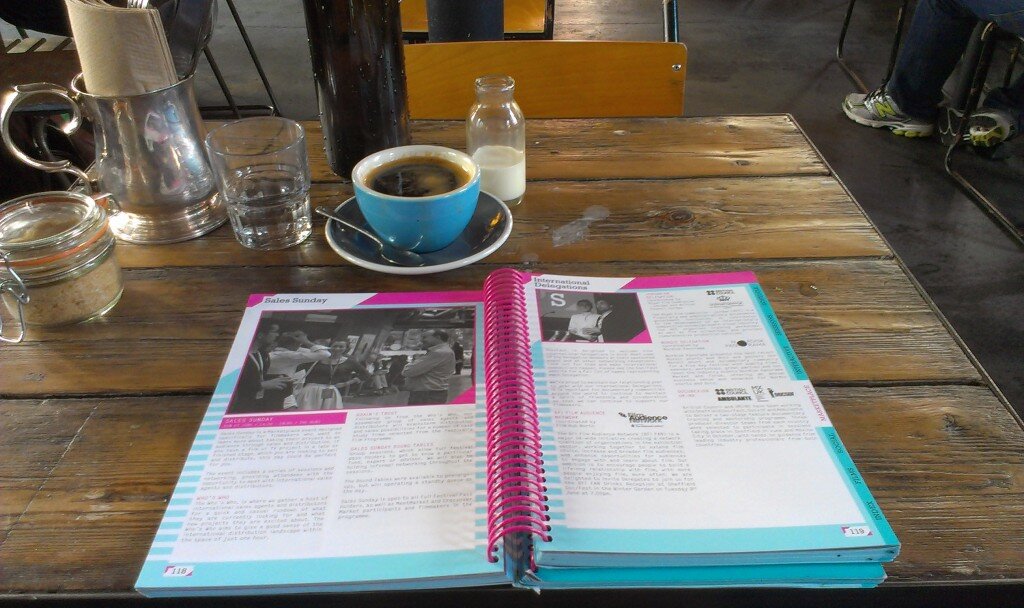Channel Information
Documentary Commissioners: Searching for Gems in the Schedule

Go to one of the major international documentary festivals and you’ll come away feeling that the genre is alive, kicking and having a party. ITV’s Jo Clinton-Davis said at Sheffield Doc/Fest 2015 that the audience was searching for “gems in the schedule”, but of all the commissioner panels, the documentary session seemed to be the one where the commissioners had the most trouble articulating/least enthusiasm describing what it was that they wanted or needed in their schedules; they seemed to be suffering a strange collective ennui. Perhaps it reflects that the quantity of of documentaries being made isn’t matched by the quality of ideas being pitched to the main broadcasters; or maybe the filmmakers with really great ideas feel alienated by the commissioning process or feel their film’s needs are better served on other platforms. Or perhaps there is just a fundamental mismatch between what the broadcasters need to fill their schedules – cheap and cheerful, long-running returning factual series (costume jewellery, if you will) – and the the time, cost and effort required for filmmakers to craft true documentary gems. Either way there wasn’t much said during this panel that would differentiate the channels’ various documentary offerings from each others’ channels or even other genre commissioners’ wishlists.
ITV
Jo Clinton-Davis, Controller of Factual at ITV pointed to Saved and The Trip Advisors as shows that illustrates ITV’s documentary remit of breadth of appeal, focus on an emotional core, impact, relatability and posing/answering universal questions. As ever finding the right presenter is vital and tricky – the person fronting the show must feel like they belong to the subject and, conversely, she also said the that they are looking for familiar people in unfamiliar situations. She referenced The Mafia with Trevor McDonald, which does seem to tick both of those seemingly irreconcilable boxes. Celebrities are a key component of ITV programming, but there is a desire to move them from functioning solely as presenters to getting them more “embedded in the format”.
Jo also made the point that they think as much about casting the right director as casting the right presenter/contributors; a skilled director brings an authorial view, vision and flair, which adds an extra layer to the content.
Sky
Celia Taylor, Head of Non-Scripted Commissioning for Sky Entertainment, also talked about the challenges of finding the right production talent: there are a generation of directors working in factual who never get to spend time in the edit cutting their own rushes and so don’t get the chance to hone their directing/storytelling skills.
Beyond that Sky is looking for documentary content that is “effortlessly diverse” (in ethnicity and socio-economic terms) and that you “can’t watch without laughing or crying”. She also wants more “funny factual.” Kings & Queens of Speech hits the mark for them.
Channel 4
Nick Mirsky, Head of Documentaries at Channel 4 said that there was more appetite for single docs on the channel than at other networks and acknowledged that the single doc was an important training ground for the next generation of documentary makers.
Access to a place/person is always good (and is the advice given to filmmakers trying to secure that illusive first broadcast commission), but sometimes sometimes a constructed approach offers more illumination, so Channel 4 is shifting its documentary content into a more constructed space, whilst still trying to tell the most authentic stories. Gogglebox, First Dates and The Island With Bear Grylls were offered as examples of this blending of approaches. Rig shows offer another way of telling stories without the intrusion of a presenter and crew, but not the only way. Hunted is a collaboration between documentaries and formats.
The Channel 4 audience wants to feel that they are dropped into a world (what Jane Root once described as more akin to being in the Land Rover driving across the African bush, not merely watching the Land Rover drive past). Presenters must over more value than just holding the audience’s hand; they must be able to pull out the different threads of the story. Grayson Perry is very successful for them.
BBC
Patrick Holland, the very newly appointed Head of Commissioning for Documentaries, hadn’t yet had time to formulate a new commissioning brief, but did mention The Met (an access-driven) and Desmond the Farmer (character-driven) as shows that had the right kind of sensibility.
How to pitch?
The panel offered three key tips for pitching to them:
- Describe the idea in 1-2 sentences
- “A documentary shot entirely by three former military officers which follows British men who have volunteered to fight Islamic State militants in Syria – providing unprecedented insight into the dangerous and brutal reality of ‘amateur’ fighting on the IS frontline.” – Fighting ISIS, Channel 4
- “The inside-the-barbed-wire story of the men and women who worked on the Manhattan Project at Los Alamos.” – The Race For The World’s First Atomic Bomb: A Thousand Days Of Fear, BBC4
- “A series following a variety of expectant creatures at every stage; from giving birth alone and bonding to making sure her offspring learn important lessons that will help keep them alive in a world where at any minute, they could become someone else’s dinner.” – Animal Mums, ITV
- Sell the idea with a taster tape and/or paragraph.
- Make the idea stand out with a well thought out title.


Discussion
Comments are disallowed for this post.
Comments are closed.